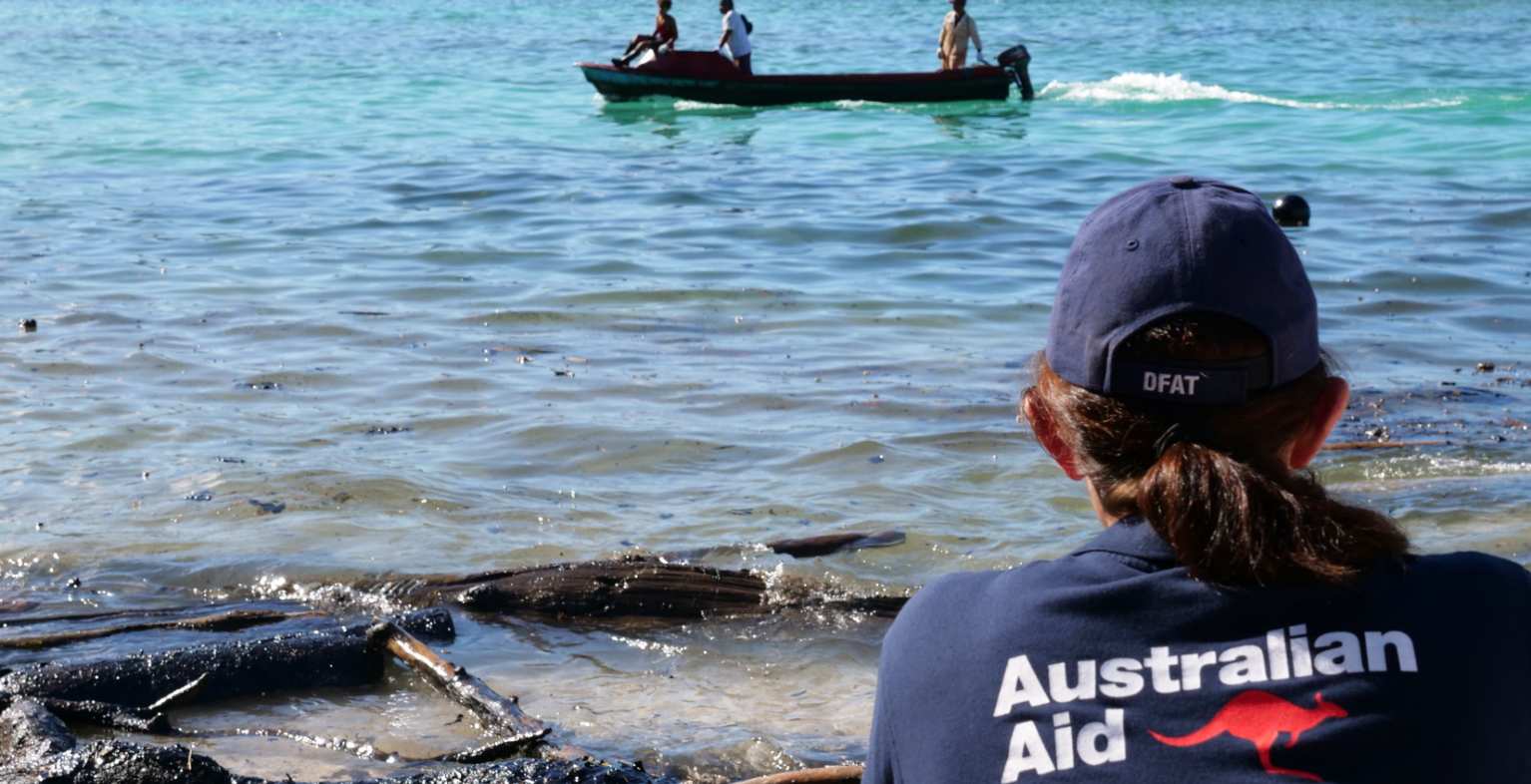DFAT Accreditation

Bulk Carrier MV Solomon Trader grounding in Solomon Islands. Photo: Department of Foreign Affairs and Trade.
Australian non-government organisations wishing to receive funding under the Australian NGO Cooperation Program (ANCP), must be accredited with the Department of Foreign Affairs and Trade (DFAT). To apply for accreditation, organisations must first be signatories to ACFID’s Code of Conduct, and meet the standards required by DFAT for accreditation.
Two standards serving different purposes
Both the ACFID Code and DFAT Accreditation outline high standards for Australian NGOs’ structure, governance, policies and practices, but they serve different purposes.
The purpose of the ACFID Code of Conduct is to improve international development and humanitarian action outcomes and increase stakeholder trust by enhancing the transparency, accountability and effectiveness of ACFID’s members. It is a voluntary, self-regulatory sector code of good practice. The Code is primarily regulated through a second-party verification process whereby Code signatories self-assess and report their assessment of compliance to ACFID at regular intervals in their compliance cycle. Code reporting is complemented by other processes not covered in this assessment, such as spot checks, emergency appeal website compliance checks and the Code’s independent complaints handling process.
The purpose of DFAT Accreditation is as a front-end and rigorous risk-management and due diligence process for Australian NGOs seeking funding through the Australian NGO Cooperation Program. Accreditation ensures the Australian Government is selecting high performing, professional organisations that are capable of delivering quality development outcomes and are accountable to their stakeholders. It assures the Australian public that the Australian Government is working with the most effective partners. To gain accreditation, Australian NGOs are required to undergo a thorough and independent assessment of their organisational structure, philosophies, policies and practices against an agreed set of accreditation criteria.
These distinct yet related purposes influence what is covered by both standards, how organisations are assessed and the level of evidence required in the assessment process. This means that at times the two standards have different or additional requirements to each other.
To help existing and prospective ACFID members better understand the relationship between the ACFID Code of Conduct and DFAT Accreditation, ACFID has developed the following resources.
Key Resources
ACFID Code and DFAT Accreditation ‘at a glance'
A ‘cheat sheet’, designed for prospective and new ACFID members to understand the reporting expectations and relationship between the ACFID Code of Conduct and DFAT Accreditation. Please email [email protected] for an accessible version of ACFID Code and DFAT Accreditation ‘at a glance’.
Frequently Asked Questions
This factsheet provides answers to frequently asked questions for existing or prospective ACFID members who are considering applying for DFAT Accreditation. Please email [email protected] for an accessible version of the Frequently Asked Questions.
Detailed Mapping of the ACFID Code and DFAT Accreditation
This spreadsheet provides a detailed comparison of the compliance requirements of the ACFID Code of Conduct and DFAT Accreditation. It is designed to assist members in identifying where the standards are similar and where they differ, and to help members prepare their compliance reporting for both standards.
It is most useful for ACFID members who are, or who wish to be, DFAT accredited.
The Mapping Tool:
- Identifies the extent to which the requirements in the ACFID Code and DFAT Accreditation criteria match.
- Identifies stand-alone requirements in both the ACFID Code and DFAT Accreditation criteria.
- Helps ACFID members identify what they might already have in place to meet accreditation criteria by virtue of their compliance with the Code.
- Gives ACFID members a practical tool to help prepare for Accreditation and Code reporting internally.
NB: It is important that members do not assume that even where there are matching requirements between the two standards, they will automatically meet the DFAT criteria. It is critical that members still assess their compliance with each DFAT accreditation criterion as part of preparing for accreditation. Where requirements are identified as matching in this mapping, this is based on the assumption that ACFID members are compliant with all the detail in the Code verifiers and would have evidence to support this in both policy and practice. Members should keep in mind that while compliance with the Code is verified as part of a Code Self-Assessment, DFAT accreditation is an independent assessment confirming evidence to demonstrate their compliance.
This short video tutorial explains the key features and functions of the mapping tool.
Any questions, queries or comments can be made to [email protected].
Spreadsheet last updated August 2021.
DFAT Accreditation consultants
ACFID maintains a list of consultants who may be able to help ACFID members prepare for DFAT accreditation. Please contact the ACFID Code team at [email protected] to request this list.



